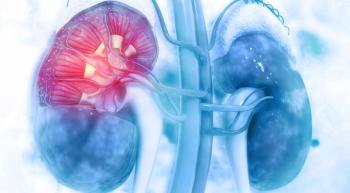
Examining Occupational Stress in Oncology Nurses
Nurse stress can have trickle-down effects in the cancer setting, but certain interventions can help.
Oncology nurses are prone to occupational stress and burnout, and the current COVID-19 pandemic is putting even more pressure on the health care workforce around the world. Various methods have been used to decrease nurse stress, and a recent study published in Health Psychology Report analyzed these interventions.
“A few studies found that oncology nurses have produced some of the highest stress levels compared to others,” said study author William Kent, a PhD student at the Centre for Contextual Behavioral Science at the University of Chester, in the United Kingdom.
Occupational stress includes multiple concepts: burnout, secondary post-traumatic stress disorder, vicarious traumatization, and compassion fatigue. Researchers analyzed 9 studies on interventions for occupational stress and found that while different interventions — including mindfulness, self-care, and others – seemed to help, the benefits could not be quantified or followed long-term.
Stress Impacts Nurses, Cancer Care
When stress continues for a long period time, there can be trickle-down effects that affect nurses individually, as well as their workplaces as a whole.
“There’s a physical element to [chronic stress.] Biologically, there are muscular skeletal issues, like back problems,” Kent said. “But then there’s also increased risk of absenteeism, turnover, and just leaving the job because they can’t cope with it anymore. This is particularly an issue at the moment, as we’re seeing shortage of staff.”
High nurse turnover can put even more stress on the nurses who remain, repeating a vicious cycle. Previous research has found that this can have negative impacts on the patient care, too.
This can be compounded with impacts from the COVID-19 pandemic, where nurses are facing overflowing hospital units, personal protective equipment shortages, and the need to learn new ways of giving care, such as through telehealth.
ACT Model Can Improve Stress
To combat occupational stress, Kent and his team recommend the ACT (acceptance and commitment therapy/training) framework, which includes components like mindfulness and analyzing how thoughts can maintain a person’s negative behavior. Previous research has explored ACT’s usefulness in the cancer setting, but it was done with the patients, not the providers.
ACT is a previously studied theory that has shown measurable success in other populations — something that Kent said is crucial in developing interventions to occupational stress for oncology nurses.
“Future interventions and training packages that are provided [for nurses] really need to be informed by theories,” Kent said.
Reference
Kent W., Hubert-Williams NJ, Hochard KD. A review of stress management interventions for the oncology nursing workforce: What do we know and what should we be doing differently? Health Psychology Report. 2020.
Newsletter
Knowledge is power. Don’t miss the most recent breakthroughs in cancer care.

























































































